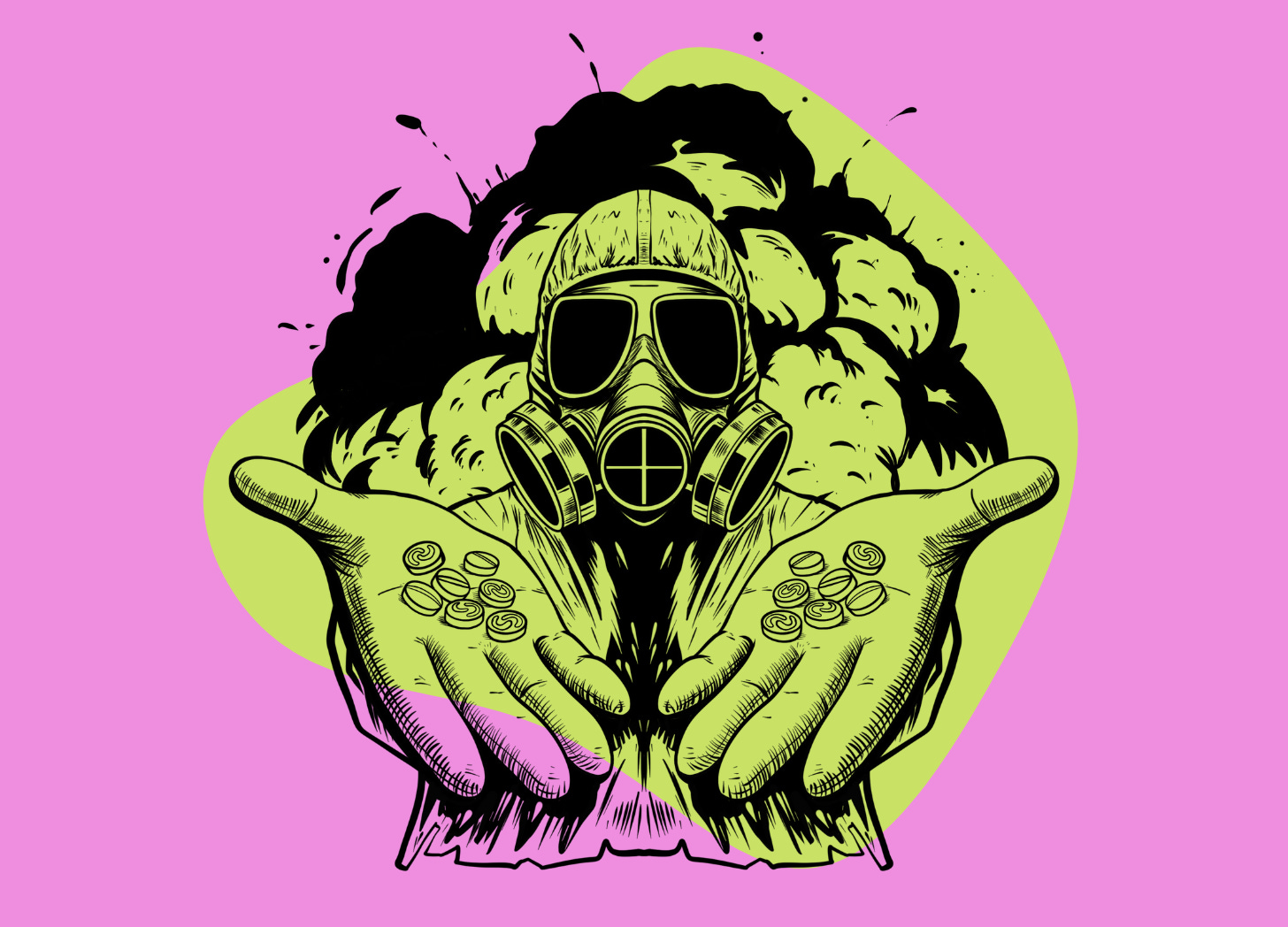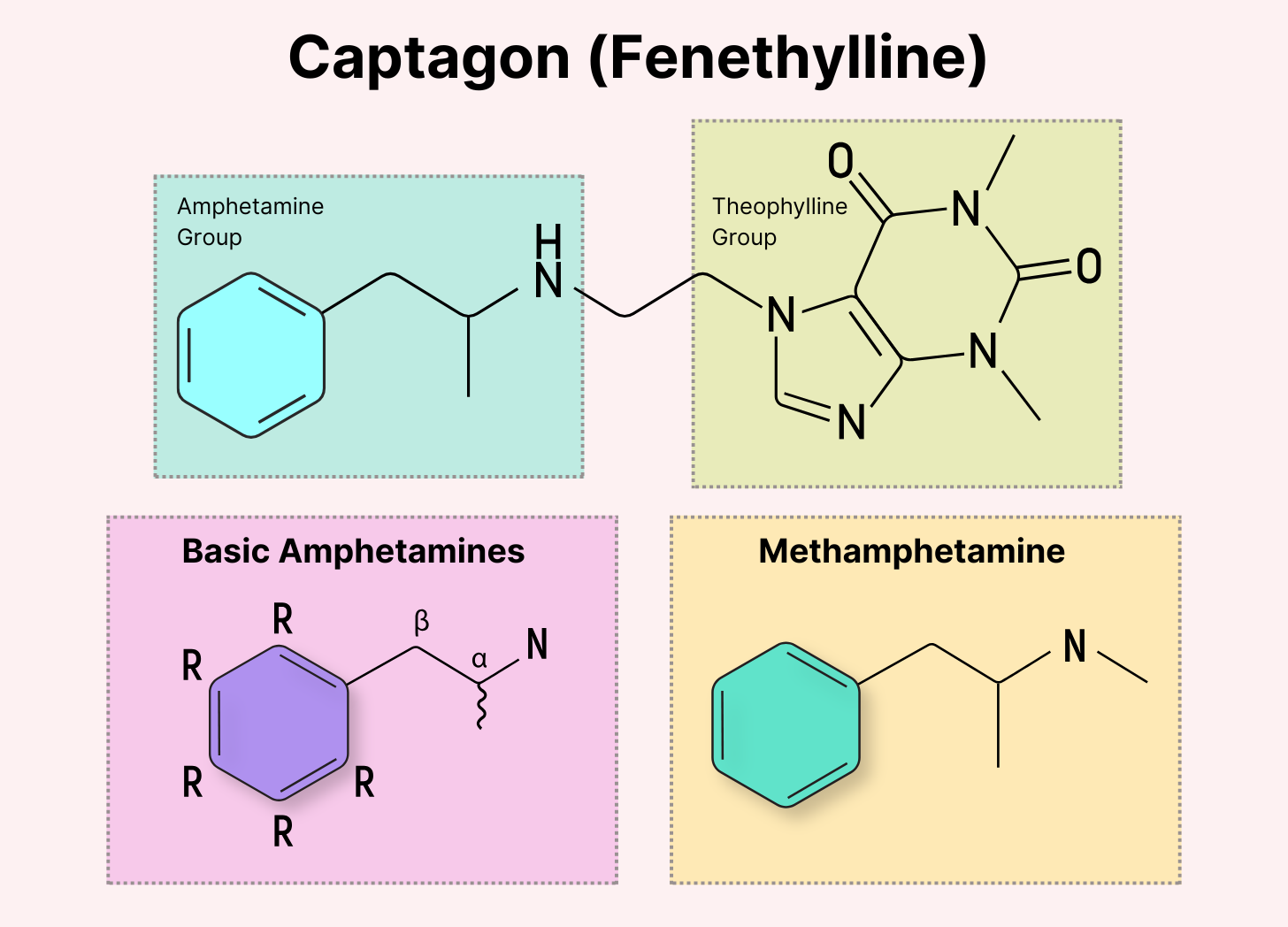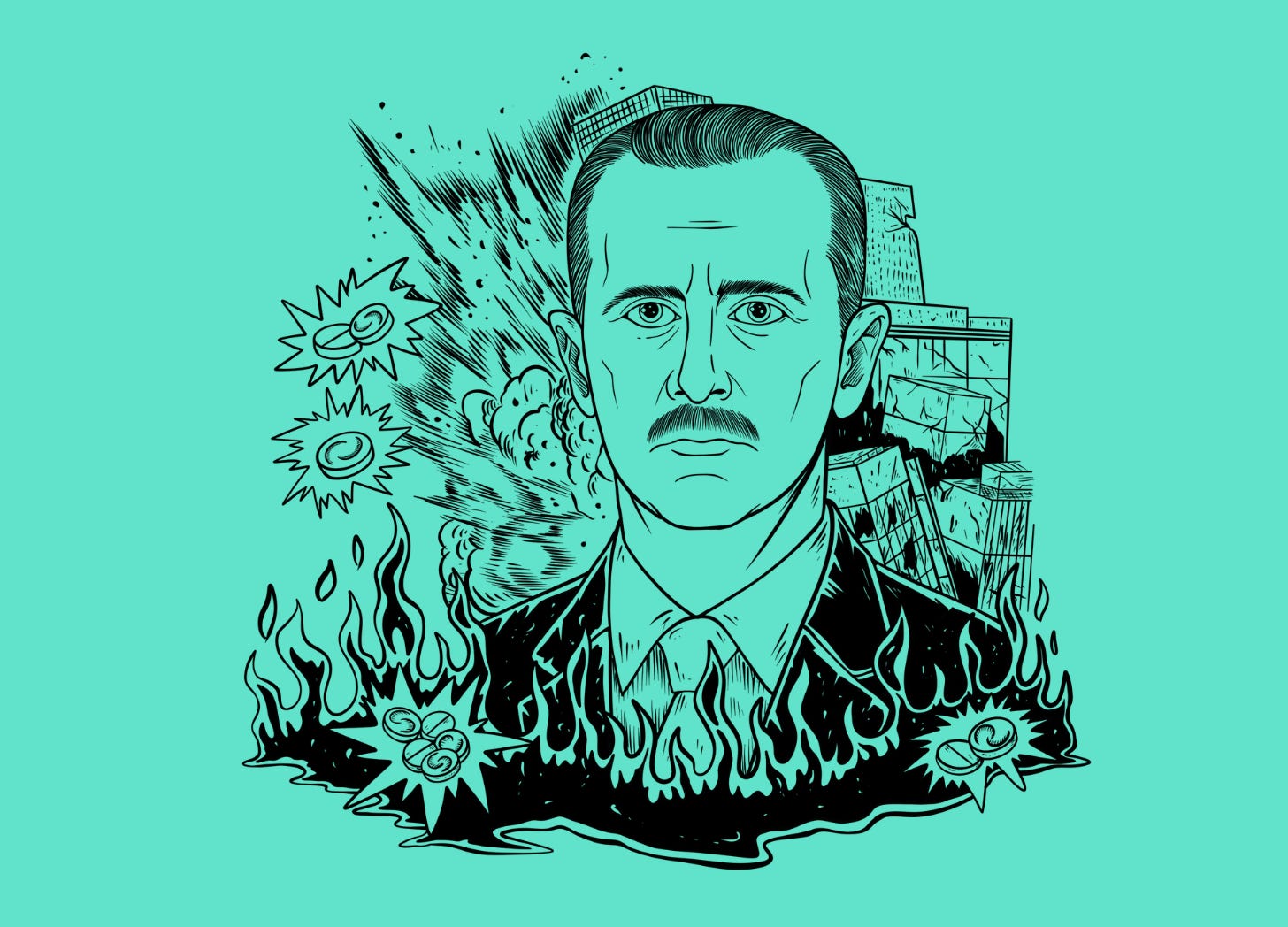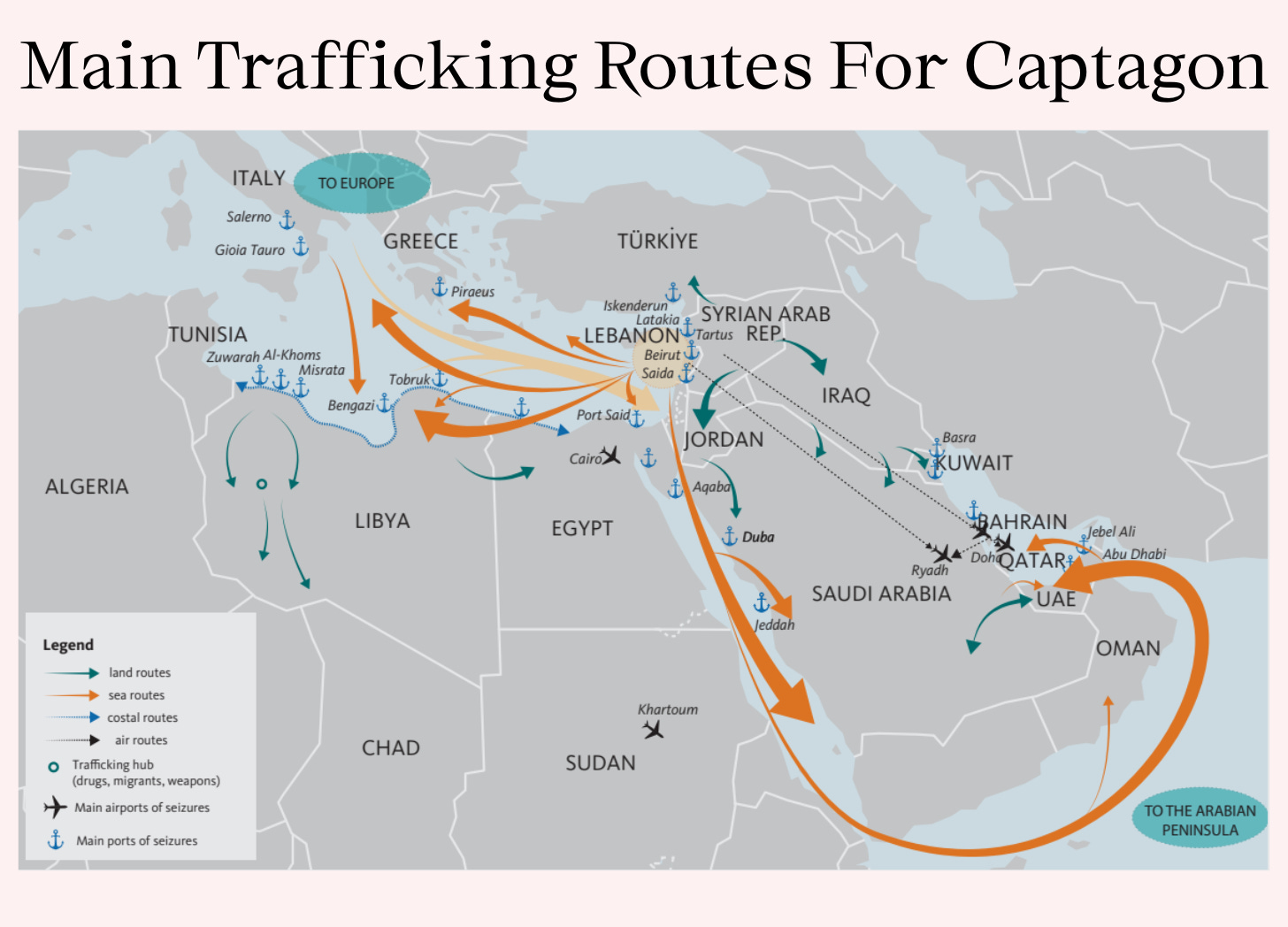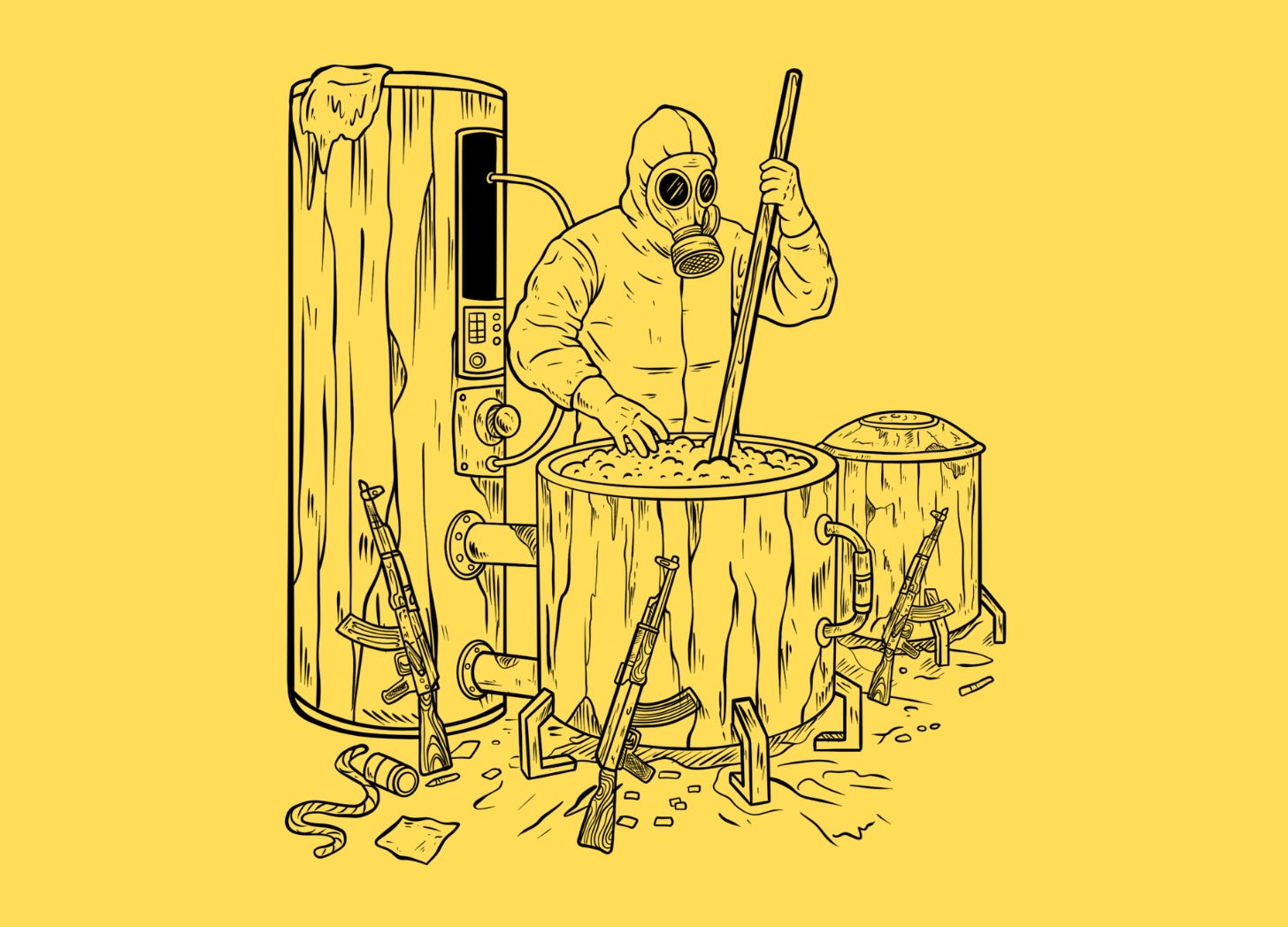The Captagon Cartel: Inside Syria’s Drug-Fueled Dictatorship
Beneath the chaos of Syria’s civil war, Captagon — an amphetamine prodrug — became the lifeblood of a regime fueled by corruption & desperation.
In November 2024, rebels toppled a 50-year dictatorship in Syria.
As regions controlled by oppressive dictator Bashar al-Assad fell, the new government confirmed what had been an open secret for years — al-Assad's regime was being propped up with profits from Captagon, a stimulant drug widely used by taxi drivers, college students, Islamic state fighters, and everyone in between.
In a country embroiled in civil war for over a decade, Captagon was a way for everyday folk to keep up the energy needed to work that extra shift, stave off hunger, or, if one is so lucky, party or study for exams.
For al-Assad’s regime, Captagon filled the financial void international sanctions created following the violent repression of civilians during the 2011 Arab Spring.
To hold onto power, the Syrian state-backed laboratories reached industrial scale under the protection of Syria's military, with reports suggesting such factories continued to churn out pills until the final hours of al-Assad's dictatorship.
While some attempted to cover their tracks, burning Captagon en masse, the high-grade lab glassware, massive ovens, and drums of precursor chemicals still told the bigger story of how Syria became a narco-state.
"Chemical Courage" for Conflict in the Middle East
Captagon is the brand name for the drug fenethylline — a stimulant created by German pharmaceutical company Degussa in the 60s.
When consumed, fenethylline is metabolized into amphetamine and theophylline, a synergy that brings euphoria, focus, and energy.
The drug is viewed as mild in comparison to meth, cocaine, or even the abundant opioids available from Afghanistan — yet it remains highly addictive and withdrawals can include headaches and depression.
Some users also mix it with opioids or use it as a weight loss drug.
Brown and tan pressed tablets with a logo of crescent moons are most often consumed orally, but can also be crushed up and snorted or injected.
Initially used as a treatment for ADHD and narcolepsy, the drug was available in many countries until its abuse potential led to it being listed as a Schedule II drug by the UN in 1971.
Less taboo than alcohol, Captagon has spread throughout many groups in the Middle East. A long-haul truck driver, for example, can avoid sleep to make his delivery deadlines. Fighters draw on it for some extra "chemical courage." Manual laborers use it to power through long, arduous shifts.
A few companies attempted to bring Captagon to the US market, but it was officially denied in 1984 due to fears over abuse and side effects, including hallucinations, psychosis, and, in rare cases, heart attacks, delusions, and seizures. The same year, the first seizure of trafficked Captagon pills appeared on the books in Germany.
As more countries banned Captagon, production moved underground. Bulgaria became a hub during the Cold War. The Bulgarian secret service smuggled the drug via an import-export company into Europe and the Middle East.
When Bulgaria joined the EU in the 2000s, Captagon factories were shut down, but demand in parts of Europe and the Middle East remained. Wealthy youth in Saudi Arabia and the United Arab Emirates continued to be a fertile market for Captagon, but manufacturing in such countries was far too risky — with punishments for trafficking including the death penalty.
Syria, however, was a different story.
Before the Civil War, the country had developed a thriving pharmaceutical industry, supplying 90% of the country's needs and at one point exporting 150 million dollars of pharmaceuticals around the Middle East.
With knowledge and infrastructure available, and the synthesis of Captagon being relatively simple, labs popped up throughout Syria.
Soon, smugglers transported millions of pills through long-established smuggling routes in the Middle East with drones, fake fruits, candy, children's toys, or even sewn inside of sheep.
Syria’s Billion-Dollar Smuggling Routes
In 2011, the Arab Spring threatened to upset al-Assad's hold on power. Al-Assad deployed the military against protestors and escalated the situation into a full-scale civil war, which would eventually result in a massive loss of life and the displacement of millions.
Al-Assad used the air force and chemical weapons against Syrians, and sanctions from the international community followed, plunging Syria into an economic no man's land.
Options for funding the failing state were wearing thin, and the collapse of Lebanon's economy nearby brought further desperation. The ensuing poverty fueled Captagon smuggling and small-scale production, while insurgent groups in the Middle East also produced, smuggled, and consumed Captagon.
The Assad regime began to take control of Captagon trade routes moving through the country. Bashar al-Assad's brother, Mahar al-Assad, the leader of Syria's 4th Armored Division, one of Syria's most powerful militia groups, began to build out industrial-scale production facilities in parts of Syria still under their control.
The Syrian Arab Army was fighting off rebel groups while also protecting the Captagon factories near vital trade routes, and major ports like Latikia. These routes were largely used for shipping Captagon to Europe. Other overland routes were protected in partnership with Hezbollah.
It's estimated that in the early 2020s, Syria was producing 80% of the world's Captagon.
Valuing any underground market will always be speculative, and estimates on the worth of Captagon are all over the map — ranging from around $ 2 billion to $ 57 billion.
For comparison, Mexican cartels are estimated to make anywhere between $6 and $29 billion.
Regardless of the exact number, the regime was making a killing from its stimulant drug empire.
The Collapse of a Narco-State
In 2022, numbers from border seizures suggest production was peaking. Violence plagued the smuggling routes, and millions throughout the Middle East developed habitual stimulant use with access to pills as cheap as $1.
While pills sold as 'Captagon' on the street and dark web still feature the classic dual crescent moon logo — they no longer contain the original fenethylline. Instead, they’re often laced with a range of stimulants, including caffeine, procaine, ephedrine, and various types of amphetamines.
Indeed, production had at some point shifted to methamphetamine, which is far more potent than fenethylline and therefore more economical to produce and traffic.
In 2022, Syria's economic exports on the books were around $1 billion. Even with lower estimates of a couple billion $$$ in Captagon profits, it's clear sales from the drug dwarfed the legitimate economy.
While the profits kept the people at the top afloat, millions of pills being seized at the borders of neighboring countries were impossible to ignore, and pressure began to mount on Syria to crack down.
In response, Syria began to arrest Captagon kingpins known in the region, while media published statistics of raids on Captagon production and subsequent arrests, bragging of a 40% increase in arrests and a 60% increase in seizures.
This media narrative, however, is viewed as false, only propaganda to get support and funding from surrounding states. By targeting individuals, rather than production or smuggling routes, the regime painted a picture of caring while allowing production to continue.
Syria's Purge: Can the New Government Overcome the Captagon Epidemic?
In November 2024, the tides turned against al-Assad.
A coalition of armed groups fighting the Assad regime, known as Hayat Tahrir al-Sham or HST, swept through the country towards Damascus. By December, al-Assad had fled to Russia, and an interim government was installed, which pledged to 'purify' Syria from Captagon.
In his final days, Assad made last-ditch phone calls to neighboring states, but received no aid, and Captagon expert Caroline Rose at the New Lines Captagon tracking project has argued Assad's phony Captagon crackdown was one of the final straws for surrounding countries fed up with gaslighting while meth poured over the borders.
Syria's new President, Ahmad al-Sharaa, has acknowledged the problem of Captagon, not only for Syrians, but also for other Middle Eastern and Southern European countries. Al-Sharaa said in one interview that Syria was once a stop on the Silk Road, a hub of trade, and hopes to rebuild Syria's economy.
Analysis from New Lines says al-Sharaa (who is a former al-Qaeda fighter) will have his work cut out for him. Captagon is still being seized at borders, and clandestine production is still alive and well throughout Syria. Indeed, dismantling the Captagon cartels will require a great deal of resources, time, and focused effort — which are all being stretched by a new government.
Even if the new government is successful, the wider problem of stimulant abuse throughout the Middle East remains. As journalist Niko Voroboyov points out, suppression of stimulant production will create the "balloon effect" — if one applies pressure to one part of the balloon, it will expand elsewhere.
It’s the same balloon that Western countries and the UN were stepping on in the 70s and 80s. Shutting down legitimate production didn’t remove the market for Captagon — it offered it to the underground on a silver platter.
Without oversight on production practices, Captagon morphed into methamphetamine — further fueling addictions in unsuspecting populations and giving a way for a dictator to cling to power.
Further Reading:
Russia’s Darknet Drug Empire: The Future of Online Trafficking
Special Project on the Captagon Trade (New Lines Institute)
What Will Happen to al-Assad’s Captagon Empire Now? (Al Jazeera)
Enjoying Tripsitter? 🍄
Don’t Journey Alone! Tripsitter was built by a community of psychedelic advocates — but it’s people like you that allow us to thrive.
You can also follow us on Bluesky or subscribe to our Reddit.




